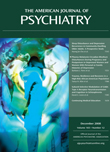The Life of the Skies: Birding at the End of Nature
As I prepared to write this review in my study, I looked out my window over the small lake in my backyard. The pink glow of dawn illuminated a gnarled live oak tree adorned with Spanish moss. A dozen white ibis sat motionless on the branches of the oak, symmetrically situated as though by an artist’s rendering. The serenity of these majestic birds, oblivious to my presence, was striking. As I watched them, I felt some combination of otherness and kinship. Their stillness created a stillness in me. Yet, they seemed remote and inaccessible. I was reminded of Jonathan Rosen’s observation in this absorbing new book that bird watching is a path to the universal through the particular—a linking of infinity with the commonplace.
Rosen takes the reader on a journey that is his own journey. The title he has chosen comes from a poem by D.H. Lawrence: “Birds are the life of the skies, and when they fly, they reveal the thoughts of the skies” (p. 12). In the course of this excursion, he visits a host of colorful historical characters who share his passion for bird watching: Audubon, Thoreau, Whitman, and Wallace, to name a few. The book is also sprinkled with a surprising number of references to Freud, reflecting the author’s psychological orientation to the subject. He notes, for example, that bird watchers must possess a combination of Zen-like devotion and type A anality.
Rosen was an unassuming essayist for The New York Times and The New Yorker before the bird watching bug bit him in 2000. Much of the book documents his quest for the elusive ivory-billed woodpecker that drew him to the Louisiana swamps in the fall of that year. He was gradually transformed into a denizen of a subculture of obsessive ivory-billed seekers. This intrepid group is committed to proving that the legendary bird is not actually extinct. Fueled by two well-publicized sightings, Rosen and a motley group of like-minded birders trudged through snake-infested swamps with their sights set on the ornithological version of the Holy Grail.
In this regard, Rosen is part reporter and part anthropologist, exploring a culture unfamiliar to many of us, complete with its customs, conventions, and politics. However, he is also equal part psychologist, contemplating the primal origins of the pursuit of an elusive creature. We are in Melville country here. Like the tale of Ahab and his hunt for the great white whale or Peter Matthiessen’s account of the search for the snow leopard, the story engages reader and author in a joint effort to chart the anatomy of obsession. We know in advance that Rosen will come up empty-handed in his search, but we also come to understand that it is the journey and not the destination that counts. Rosen also recognizes the undercurrent of loss in such quests: “There is a part of birdwatching that for me is always associated with losses, and with the hunt for something irretrievable…The sensation of finding something and then finally realizing that it was lost without your having known it, and then recognizing that other things are missing, too, and that this bird is just a tiny piece of what you want” (p. 150). Rosen wisely observes that bird watchers are not simply returning to nature but returning to themselves.
The book fascinates with its historical anecdotes, its esoteric trivia about a variety of different birds, some of which will be totally unfamiliar to you, and its message about the urgent need to preserve what’s left of our environment. Nature lovers must read this book, but its message goes far beyond those enamored of bird watching. Rosen teaches us that the way we regard nature is intimately connected with the way we regard ourselves. He ends the book with his characteristic psychological reflectiveness: “What sort of species are we, and what might we still become? The answer is still being written, even at this late date. This is the magic hour. There is still time, before the light fades and there is no longer anything left to see” (p. 300).



